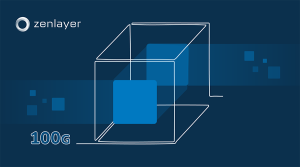A server is a type of computer hardware or software that supports other devices and programs. Servers offer greater security and reliability compared to consumer-grade workstations and enable companies to run web services more efficiently and at scale.
When selecting servers, you can choose between bare metal, traditional dedicated, and virtual machines. But this is no easy task, when considering how similar these services are.
Read on for an overview of the different concepts and benefits for each, and some key considerations to help make the right decision.
What are dedicated servers: A simple definition
A dedicated private server is a type of single-tenant cloud service, where you rent or bring in a physical machine of your choice from a cloud provider but maintain exclusive access to the underlying hardware.
Dedicated private servers do not come with any preinstalled hypervisors, granting much greater control and flexibility over the hardware. When using a dedicated server, you can choose your own operating system, and customize the hardware for specific workloads. Most importantly, dedicated server. They are:
The benefits of dedicated servers
– Single tenant (private/ exclusive)
– Affordable
– Reliable
– Minimal maintenance
– High processing power
What is bare metal?
Bare metal is essentially the same thing as a dedicated server. In other words, bare metal refers to physical — meaning non-virtualized — single tenant cloud computing servers. When using bare metal, you can select your private server with its own operating system and customize the hardware for specific workloads.
Bare metal servers are typically sold as flagship offerings, with premium memory, hard drives, and CPUs. In addition, bare metal server billing is typically more flexible.
Why companies use bare metal servers
– Complete control over the software stack
– Premium cloud infrastructure
– More consistent performance
– More flexible pricing
– Single tenant and better QoS
How virtual servers work
A virtual server is another type of dedicated private server for cloud computing. Unlike physical bare metal and dedicated servers, virtual servers do not have their own exclusive hardware. Instead, cloud providers run multiple virtual machines (VMs) through a single physical server. So, when you use a virtual server, you typically share hardware and software resources with other customers. This includes hard drives, memory, and processors.
Most companies today are using a mix of bare metal, dedicated, and virtual resources in their cloud environments, and strategically placing workloads where it makes sense.
What are the benefits of virtual servers?
– Lower hardware costs
– Reduced power and energy costs
– Environmentally friendly
– Cost-effective
– Easy to scale
What types of servers does Zenlayer offer?
Zenlayer offers Bare Metal Cloud (BMC), a global edge cloud computing service with on-demand servers across more than 40 countries. With bare metal cloud, Zenlayer has combined the best advantages from both bare metal and virtual private cloud infrastructure.
We offer bare metal servers with Intel Xeon CPUs, enterprise-grade memory, and HDD/ SDD with SATA/NVMe storage, 10G/25G network interfaces. Alternatively, you can select a virtual VPC IaaS model for BMC to access standardized bare metal servers with a variety of specifications to choose from based on CPU cores/ frequency, storage, memory, and network interfaces. This service is also available globally at edge locations.
Zenlayer bare metal cloud offers multiple benefits including flexibility, instant scalability, and global coverage. BMC also integrates seamlessly with Zenlayer Cloud Networking, providing instant connectivity to global clouds with up to 40% less latency.
Check out our BMC product page for more information or contact the team today. Ask about our special limited time promotion!







